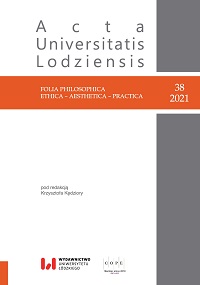Myśl Jacques’a Poulaina o człowieku i instytucjach
Jacques Poulain’s thinking the human and human institutions
Author(s): Luc LeguérinelSubject(s): Anthropology, Philosophy, Sociology, Culture and social structure , Environmental interactions
Published by: Wydawnictwo Uniwersytetu Łódzkiego
Keywords: Human being; pragmatic; philosophical anthropology; globalization; communication; religion; language; institution; Jacques Poulain
Summary/Abstract: The purpose of this article is to propose a synthesis of Jacques Poulain's philosophical reflection on language and its importance for human being and for the society. To do this, we begin with presenting what Poulain has constantly established in the light of anthropobiological knowledge in his various works by showing that the child does not directly enter the world through senses or action, but through language and that it cannot enter the world and become a subject able to think and act in isolation, but necessarily through the intermediary of a Third of speech. The same goes for the author at the institutional level, since man, as a being of language, has only been able to transform himself indirectly, through the intermediary of this Third of speech, which first took the form of the gods, then by making the detour of the judgment. Today, as Poulain argues in polemic with Jürgen Habermas, there can be no other basis for global communication than transcultural linguistic understanding, ie. language constitutes the space where man can be recognized, exercise judgment and strive for harmony with others.
Journal: Acta Universitatis Lodziensis. Folia Philosophica. Ethica - Aesthetica - Practica
- Issue Year: 2021
- Issue No: 38
- Page Range: 27-62
- Page Count: 36
- Language: Polish

